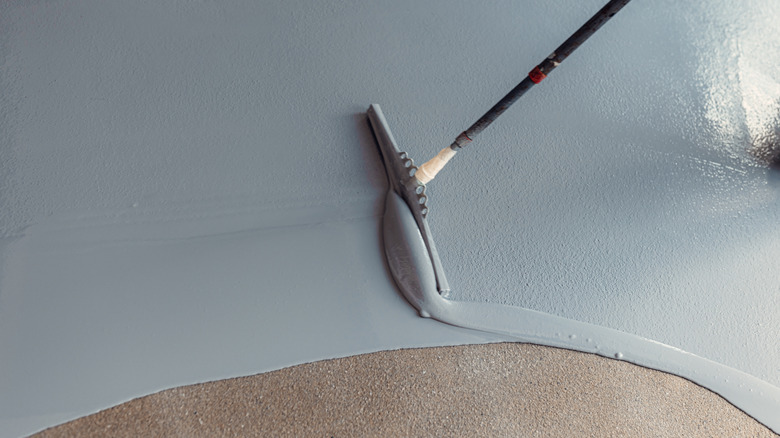Is Using Epoxy Coating Over Tile Floors A Smart Choice?
If you've been anywhere online recently, you've likely come across the epoxy flooring trend. From garages to kitchens, people are raving about how epoxy can give rooms a brand new look. You may be tempted to use it in your home to give your old, tiled floors new life. Before you hop onto the trend, you should know that epoxy is difficult to install on tile floors, and it may not produce the smooth, glossy finish that you expect. While people talk about applying epoxy flooring on a variety of surfaces, it was originally designed to be added on top of concreteand it is very difficult to remove. Although it is possible to apply epoxy on tile floors, you may run into problems with it failing to adhere properly depending on the type of tiles that you have.For example, ceramic and porcelain tiles tend to provide a better surface for epoxy to latch onto. Your natural stone or glass tiles, on the other hand, may not be compatible.
A key thing to remember with epoxy is that it needs to sink into the pores of the surface it's being installed on in order to work properly. Tiles present another issue here because many are covered with a glaze that prevents epoxy from doing its job. If you want to install epoxy on tile, you need to add the step of etching your floors. While etching is a technique most commonly associated with concrete, this process allows you to make a surface more porous. It is accomplished by either using acids, which should only be handled by professionals, or by preparing the surface with diamond-grinding.
More issues with epoxy on tile floors
If your epoxy fails to properly adhere to your tiles, it may cause your floor to peel, flake, or bubble. You should always pick a patch of tile to perform a test on before committing to your entire floor. But even if you get a proper adhesion, you can still run into issues using epoxy in high-traffic areas like your kitchen. That's because epoxy is not indestructible and it will eventually start to wear down or chip. When that happens, you will need to re-coat your floors.
Another thing to consider is that epoxy will show any imperfections in your tiles. Before adding epoxy, you will have to address any structural issues such as cracks, missing tile pieces, and etc. Additionally, you cannot leave grout lines visible, as that can easily show up in the final coat, too. You will likely need to patch your tiles' grout which can eat up a lot of time. With floors, you may also run into one of the hidden downsides of epoxy countertops: yellowing. Epoxy is sensitive to UV exposure and, over time, the sun can cause these surfaces to turn yellow. If you want to use epoxy on floors near windows, you need to ensure that you purchase a UV-resistant resin. However, it's still possible to run into issues, and many recommend limiting your epoxy flooring's overall exposure to direct sunlight.
Should you DIY epoxy floors?
If you are really attached to the idea of using epoxy on your tile floors, it is possible to achieve good results. You just have to be considerate of the issues that may arise when installing epoxy on tile. With that in mind, you may be tempted to install epoxy own our own. However, DIYing an epoxy floor can cost you more of a headache than it saves, and this may be one project where it is best to involve a professional. One of the main issues with epoxy is that it can be a difficult substance to work with. For example, if you do not mix your epoxy correctly, then your floor will likely end up blistering. But you also need to consider every step of the job. As mentioned above, you will need to prime your tiles, which includes etching them. This requires materials and equipment that the average person doesn't have or doesn't know how to use.
If you do decide to DIY the actual epoxy installation, you should at least consider budgeting for professional assistance to properly evaluate your tile floors and offer guidance on how to properly prepare your floors. From there, you can decide if you are able to undertake these steps yourself, or if there's portions of this project that you should hire contractors for.

